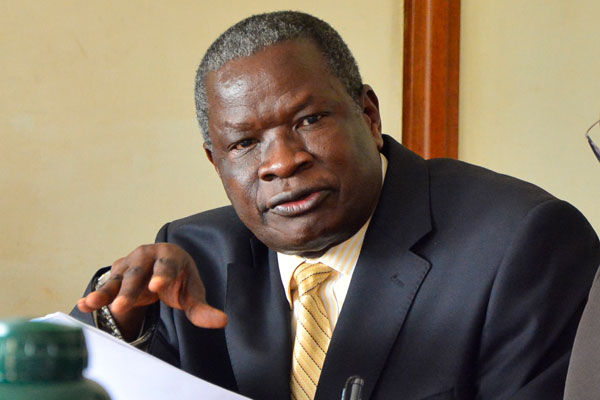Prime
Border towns not eligible for USMID projects, says minister

The State Minister for Lands, Housing and Urban Development Mr Mario Obiga Kania
What you need to know:
- The USMID is a World Bank-funded project extended to local governments to improve municipalities through construction of roads, markets, taxi parks, among other developments. Some of the beneficiaries are Arua, Gulu, Jinja, Mbale, Masaka and Fort Portal.
The State Minister for Lands, Housing and Urban Development, Mr Mario Obiga Kania has ruled out the inclusion of border town councils into the Uganda Support to Municipal Infrastructure Development (USMID) programme due to their location.
The USMID is a World Bank-funded project extended to local governments to improve municipalities through construction of roads, markets, taxi parks, among other developments. Some of the beneficiaries are Arua, Gulu, Jinja, Mbale, Masaka and Fort Portal.
“We have a criteria of selecting urban councils to benefit from the programme. It is about regional balance. We want to distribute our interventions in all the regions. There are also World Bank conditions the urban councils should fulfil such as the willingness of the population to adjust to the physical planning so that we do not have unplanned interventions,” Mr Kania said at the weekend.
This was during the annual general assembly for Urban Authorities Association of Uganda in Koboko District.
Mr Kania added that for such urban councils to benefit, they should be able to adapt to climate change by protecting the environment.
“So, it is not possible to say that we should include all the urban councils in the borders under USMID,” he said.
The minister’s response followed a petition by the concerned municipality authorities to the Minister of Local Government, Mr Raphael Magyezi, requesting to be included in the project because they felt discriminated.
“Sometimes, if you go to USMID cities and municipalities like Arua and you come to non-USMID councils, you think you are not in this country. In Koboko, we have people from South Sudan and DR Congo who strain our little resources. So USMID will give us and other bordering municipalities a boost,” Mr Wilson Sanya, their president, said.
Ms Eva Biira, the Kasese Municipality town clerk, said the non-inclusion of town councils under USMID programme has created a development gap.
“The USMID programme should include town councils because they are the face of the country. It is important that our face is clean, hospitable and interesting to get more people coming to us,” she said.
Mr Magyezi encouraged the urban authorities to improve service delivery, saying the central government is committed to funding their activities.
“The biggest problem is how to ensure that the urban authorities meet the expectations of services of our people. People have a lot of expectations from you,” he said.
Mr Sam Ejibua, the resident country manager for International Cooperation Agency of the Association of Netherlands Municipalities, urged local governments to also use other avenues to tap resources.
About USMD
The Ministry of Lands, Housing and Urban Development started implementing the Uganda Support to Municipal Infrastructure Development funded by the World Bank-IDA, through a $150m loan for a period of five years from 2013 – 2018. The project was added another five years. The overall programme objective was to enhance the institutional performance of the 14 municipal councils to improve urban service delivery.




